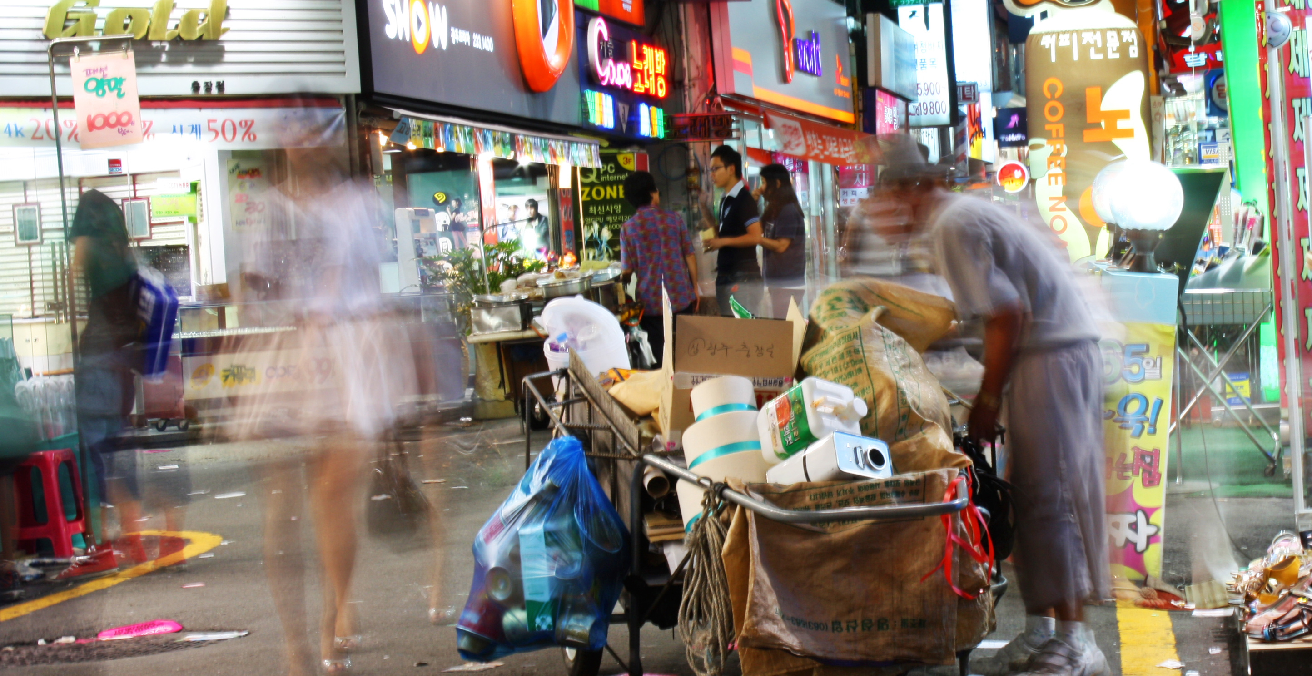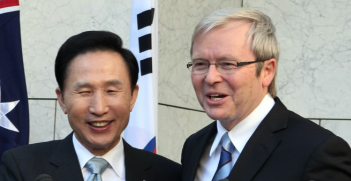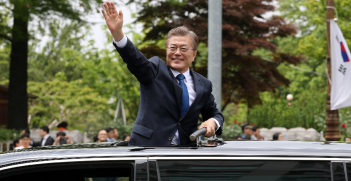The Feminist Renaissance in South Korea

Despite the Eurocentric origin story of feminism, early twentieth century Korea boasted one of the most vibrant and radical feminist movements in the world. Today, South Korea’s feminist renaissance is an instruction to other nations about how to repivot narratives of female emancipation.
Along with the “bread and butter” issues of divorce, employment, and inheritance, Korea’s educated New Women of the 1920s called out sexual harassment in the workplace and spoke openly of female sexual pleasure. In this they were far ahead of their global peers. During Japanese colonial rule, an all-women anti-colonial organisation called Rose of Sharon was established in 1927 encompassing nationalists, socialists, Christians, and Buddhists. Its members included Kim Hwallan, who would go on to become President of Ewha Women’s University in Seoul, and Ho Chŏngsuk, who became the Democratic People’s Republic of Korea’s (North Korea) first culture minister. During Rose of Sharon’s four-year run, it had its own journal and education wings. Following Japan’s takeover of Manchuria in 1931 and invasion of China in 1937, political censorship and total war mobilisation shut down the topic of women’s rights, and the only public space available for women in the 1940s was for those willing to support the Empire and its war. But the urgency of women’s rights remained.
North Korea
Liberation in 1945, followed by a devastating and unwished for division, led to the emergence of separate political systems in the Soviet-occupied north and US-occupied south. As division hardened into separate regimes, South and North became rivals competing not only over political systems and industrial development, but also over which society would be the more liberating for women. North Korea won the first round because so many of Korea’s most prominent and glamorous women went north in the late 1940s, from political prisoners to movie stars. But many of them fell victim to Kim Il-Sung’s internal purges following the disastrous Korean War, and North Korea’s feminist moment was over almost before it had begun. Yet in the South it is pertinent to ask – what happened?
South Korea
For over half a century South Korea has lingered near the bottom of key international measurements for equality like the Global Gender Gap Index. That is understandable considering the country’s three decades of military rule from the early 1960s to the late 1980s, when women faced substantial systemic discrimination. For example in employment, women were handicapped in hiring systems designed to reward men for compulsory military service and fired anyway when they got married or became pregnant. Under the military dictatorship, women were discouraged from being active in their workplace unions, and when they did, often the secret police got involved.
But democratisation, from the end of military rule in the late 1980s, was a process actively shaped by women as well as men, and might have been expected to have delivered greater gains to half of the population. The fact the gains have been so slow to arrive is damaging, as well as disturbing. The only way to account for such immense inertia on the status of women is to recognise how central gender discrimination has been to South Korea’s model of economic development, even under democracy. Women’s subordinate position, a kind of forced deference, in the labour market and in social life are crucial to understanding modern South Korea today.
Gendered Labour Discrimination
In the years since military rule, it may appear that substantive gains have been made for women in the workforce. The December 1987 Equal Employment Act stipulated equal opportunity for women in the workplace in hiring, promotion, and wages. However, equal employment was not attainable until the Constitutional Court’s 1999 ruling that the military service bonus point system which favoured men was discriminatory. By that time South Korea had been hit by the 1997 Asian Financial Crisis and the bailout agreed with the IMF carried strict conditions on repayment and corporate restructuring. In return for huge bailout loans, mass layoffs occurred.
In the sex segregated labour market, where women were not considered family breadwinners anyway, female employees were targeted for dismissal. The most notorious case was at Hyundai Motor Company in Ulsan, where in 1998 a deal was struck between management and unions and the entire kitchen canteen staff, all middle-aged women, were dismissed to make up the layoff quota. The restructuring of industries and the normalisation of flexible, more precarious contracts as part of the IMF bailout permanently altered South Korea’s employment system. The consequences of this for women, who are over-represented in the most flexible and precarious industries, can be illustrated by global indicators on women’s economic participation and opportunity, where South Korea in 2020 scored 127th out of 153 countries, ranking worse than conflict-ridden Sri Lanka and the Democratic Republic of Congo. Although South Korea performs particularly poorly, this is a global phenomenon. For instance, it is also manifested in Australia where older women represent the fastest growing homeless population, a crisis that has been decades in the making.
Gendered Social Discrimination and Violence
On 17 May, 2016, a man loitered in the public toilets at Gangnam Station waiting for the next woman to enter and then stabbed her to death. CCTV footage showed that while the man waited in the bathroom, six men used it, and it was only when a woman arrived that he struck. After his arrest, the assailant explained his crime by saying that although the woman was a stranger to him he had a deep resentment against women generally. When both the police and media described the crime as random and driven by mental illness, rather than a hate crime against women, the public outcry was immense.
Overnight, Gangnam Station became a public memorial site covered in messages of solidarity and mourning for the victim. The hashtag #ISurvived trended for weeks on Twitter as an expression that in a society with deeply embedded misogyny, simply to be a woman was to experience a threat to life. The Gangnam case changed the reporting of violent crimes against women, which had previously minimized the motives or even expressed sympathy for the assailant. Korea is not alone in this – a similar process of re-education of journalists in Australia around the reporting on domestic violence cases occurred around the same time. In South Korea, the spontaneous public memorial at Gangnam Station, visited by thousands, was archived by the city, and preserved at Seoul City Hall in a permanent expression of mourning and change.
The Feminist Renaissance
Feminism in South Korea is today experiencing a second renaissance. The push for a more ambitious and comprehensive analysis of systemic barriers impeding the flourishing and advancement of women has begun to redefine society’s notion of democracy, equality, and prosperity. Feminism itself has become more inclusive and substantive as networks of mutual support are established with the LGBTQI+ community in Korea, as well as multicultural families. Many of the problems identified here are shared with other OECD nations, including Australia. In South Korea, feminism’s turn away from defensive activism and towards a more active analysis and dismantling of misogyny in law enforcement, media, culture, and politics is instructive for us all.
Ruth Barraclough is an Associate Professor in the Department of Pacific and Asian History at the ANU. She is the author of Factory Girl Literature: Sexuality, Violence and Representation in Industrializing Korea which became a best-seller in South Korea. Together with Dr Eunseon Kim she runs the Korea Institute at the ANU.
This article is published under a Creative Commons License and may be republished with attribution.





